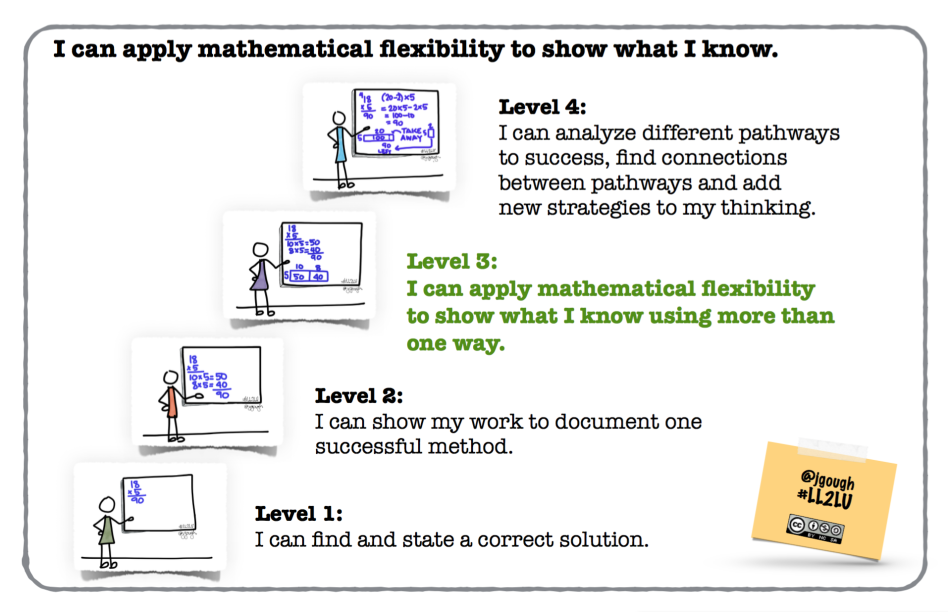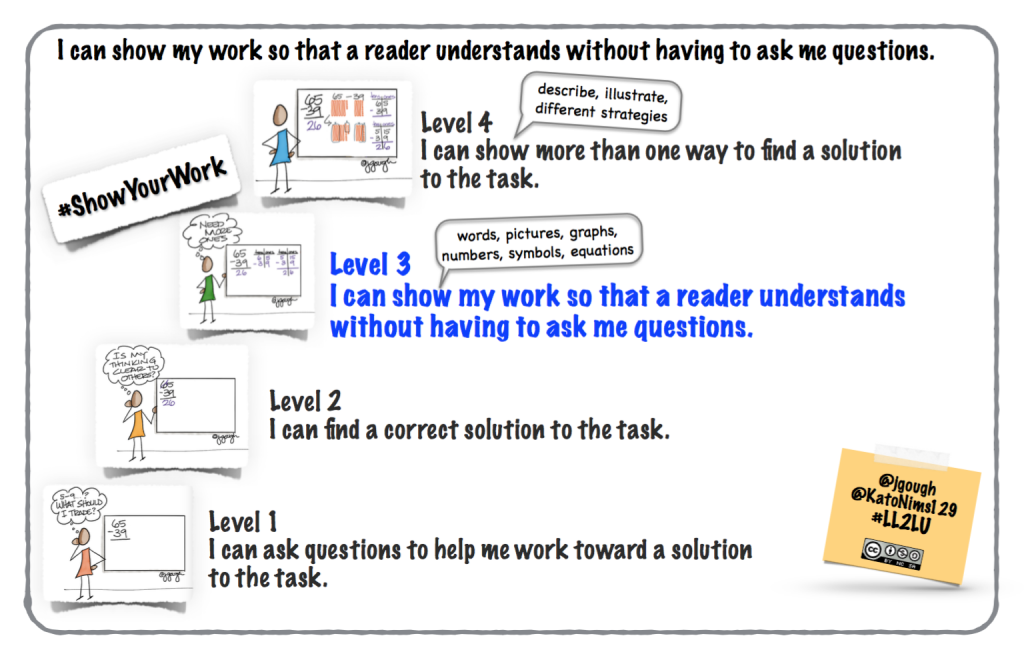Week Four of Embolden Your Inner Mathematician
We commit to curation of best practices, connections between mathematical ideas, and communication to learn and share with a broad audience.
Course Goals:
At the end of the semester, teacher-learners should be able to say:
- I can work within NCTM’s Eight Mathematical Teaching Practices for strengthening the teaching and learning of mathematics.
- I can exercise mathematical flexibility to show what I know in more than one way.
- I can make sense of tasks and persevere in solving them.
Today’s Goals
At the end of this session, teacher-learners should be able to say:
- I can implement tasks that promote reasoning and problem-solving. (#NCTMP2A)
- I can make sense of tasks and persevere in solving them. (#SMP-1)
From Principles to Actions: Ensuring Mathematical Success for All:
Implement tasks that promote reasoning and problem-solving:Effective teaching of mathematics engages students in solving and discussing tasks that promote mathematical reasoning and problem solving and allow multiple entry points and varied solution strategies.
Learning Progressions for today’s goals:
- I can implement tasks that promote reasoning and problem-solving. (#NCTMP2A)
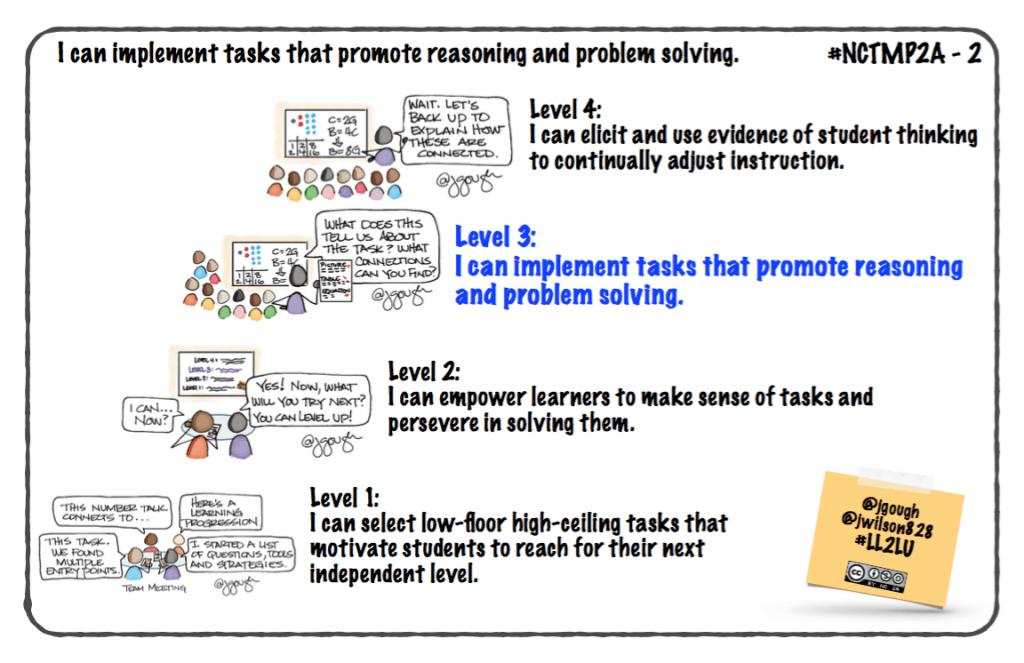
- I can make sense of tasks and persevere in solving them. (#SMP-1)
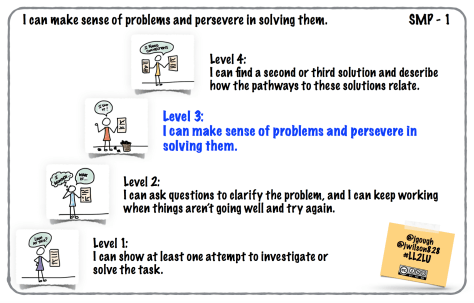
Tasks:
- Read and “do the math” from Sheep Won’t Sleep: Counting by 2’s, 5’s, and 10’sby Judy Cox.
- Select, read, and mathematize a book of your choice. Plan a lesson for your students.
Anticipated ways to mathematize Sheep Won’t Sleep. 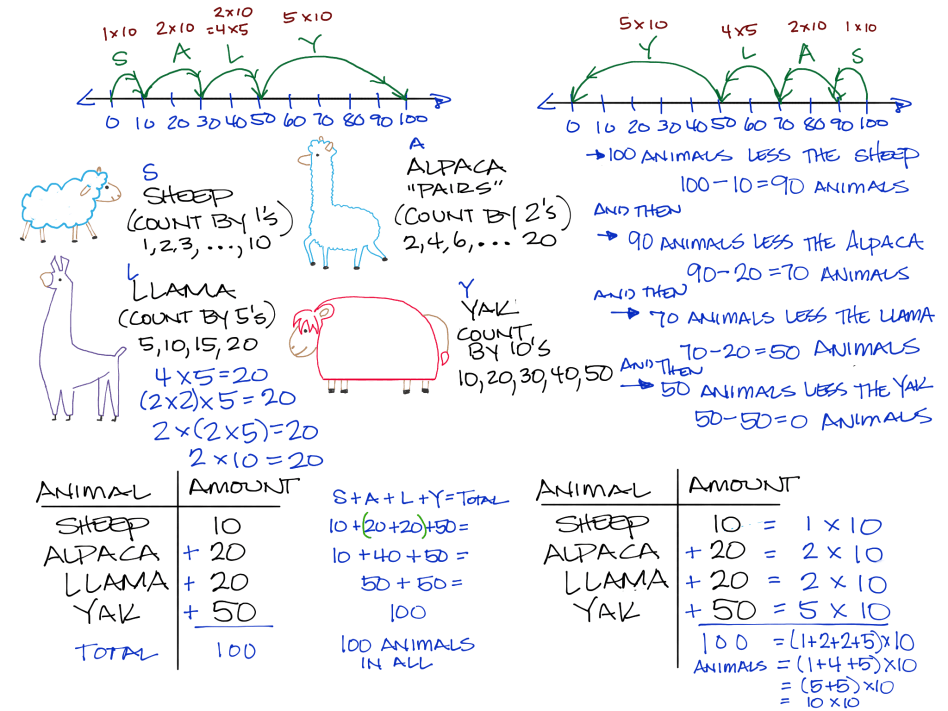 See Jill’s blog post for additional details.
See Jill’s blog post for additional details.
[Cross posted at Experiments in Learning by Doing]
Gough, Jill, and Jennifer Wilson. “#LL2LU Learning Progressions.” Experiments in Learning by Doing or Easing the Hurry Syndrome. WordPress, 04 Aug. 2014. Web. 11 Mar. 2017.
Leinwand, Steve. Principles to Actions: Ensuring Mathematical Success for All. Reston, VA.: National Council of Teachers of Mathematics, 2014. (p. 21) Print.

